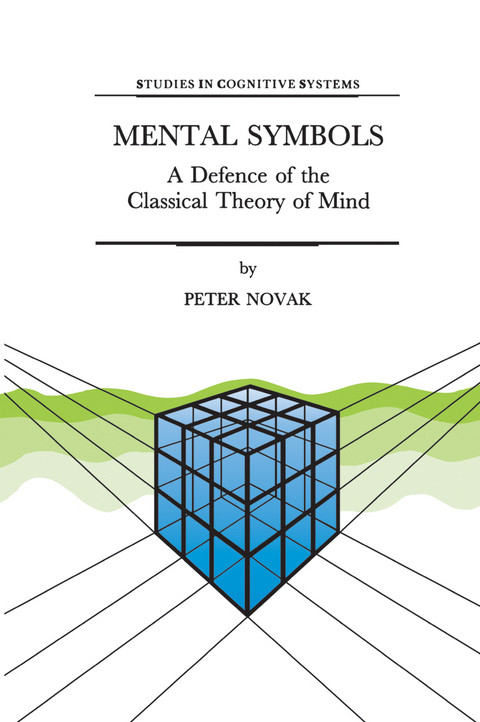
Mental Symbols
Springer (Verlag)
978-94-010-6374-6 (ISBN)
1 Conservative Rationalism I.- 1.1 Common-sense Psychology.- 1.2 The Supervenience Chain.- 1.3 The Nomic Theory of Reference.- 1.4 Casus Belli.- 1.5 Nomenclature.- 2 The Idea as World and Will A Belief in a Contribution of Environment to Meaning and a Division of Semantic Labour.- 2.1 The Ambiguous Meaning of “Meaning ”.- 2.2 The Will to Linguistic Power.- 3 Sentence-based Semantics Early Steps toward Semantic Holism.- 3.1 Motivation for Semantic Holism.- 3.2 Frege on Term-based Semantics.- 3.3 Russell on Term-based Semantics.- 3.4 Carnap’Semantic Verificationism.- 4 Radical Empiricism I.- 4.1 Meaning and Non-existent Entities.- 4.2 The Separation of Meaning and Reference.- 4.3 Mental and Mind-Independent Semantic Universals.- 5 Radical Empiricism II.- 5.1 Two Major Routes to Semantic Holism.- 5.2 The Route from Verificationism to Holism.- 5.3 The Route from Behaviourism to Holism.- 5.4 Remarks on Middlebrow Pragmatism.- 6 Conservative Rationalism II.- 6.1 The Old Sorcerer’s Supervenience Chain.- 6.2 Misrepresentation and Asymmetric Dependence.- 6.3 The Sociological Phase of Reference.- 7 The Classical Theory of Mind I.- 7.1 Five Ways of Defining Logical Modality.- 7.2 The Classical Theory of Mind.- 7.3 The Classical Theory of Representation.- 7.4 Aspects of the Classical Theory of Knowledge.- 7.5 Modal Properties in the Model Code.- 7.6 The Complex Ideas of Implication.- 7.7 The Complex A Priori Idea of Valid Deductive Inference.- 7.8 Remarks on CTM and Analytic Philosophy.- 8 The Classical Theory of Mind II.- 8.1 The Ontology and Architecture of CTM.- 8.2 Learning, Memory, and Association in Aplysia.- 8.3 Learning, Memory, and Association in Vertebrates.- 8.4 The Genetic Code, the Mental Code.- 8.5 History, Histology, and the Molecular Level of Analysis.- 9The Classical Theory of Mind III.- 9.1 Toward an Integrated Account of Mind.- 9.2 The Symbolic System of a Deep-layer, Long-term-store Psychic Cell.- 9.3 The Mind as a System of Psychic Cells.- 9.4 The Mind and its External Affairs.- 10 The Tale of Russell’s Paradox.- 10.1 The Misty Origins of Analytic Philosophy.- 10.2 Russell’s Sophism in the Classical Theory of Mind.- 10.3 The Well-Formedness of the Mind.- Epilogue.
| Reihe/Serie | Studies in Cognitive Systems ; 19 |
|---|---|
| Zusatzinfo | XXII, 267 p. |
| Verlagsort | Dordrecht |
| Sprache | englisch |
| Maße | 160 x 240 mm |
| Themenwelt | Geisteswissenschaften ► Philosophie ► Erkenntnistheorie / Wissenschaftstheorie |
| Geisteswissenschaften ► Sprach- / Literaturwissenschaft ► Sprachwissenschaft | |
| Sozialwissenschaften | |
| ISBN-10 | 94-010-6374-5 / 9401063745 |
| ISBN-13 | 978-94-010-6374-6 / 9789401063746 |
| Zustand | Neuware |
| Haben Sie eine Frage zum Produkt? |
aus dem Bereich

![Was heißt Denken?. Vorlesung Wintersemester 1951/52. [Was bedeutet das alles?] - Martin Heidegger](/media/113619842)
